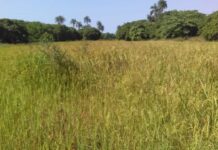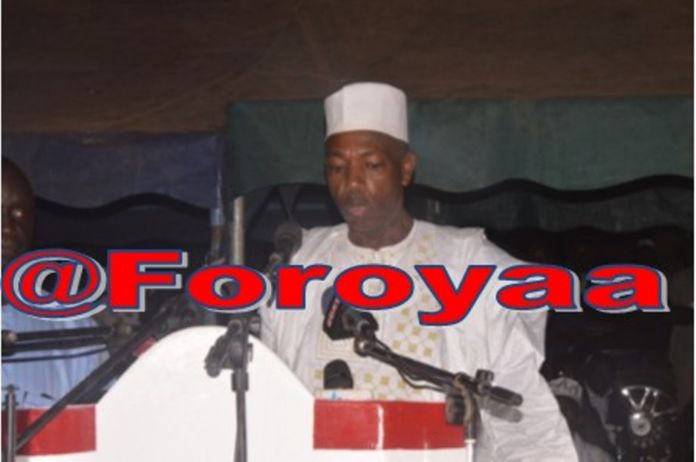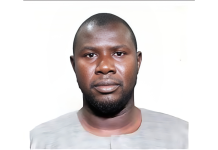Tourism Minister Hamat Bah has said Gambia like other countries emerging from many years of despotism needs culture to regenerate national dialogue and consensus.
According to the Minister, people can always arrive at solutions to their political and social differences through shared heritage; that through shared cultural heritage, ‘we can build a united and prosperous Gambia’.Minister Bah made these remarks on Friday January 24th 2020 at the opening ceremony of the 3rd Kankurang Festival held in Janjanbureh in the Central River Region (CRR) according to a statement from the Information office of his Ministry.
The event was said to be organised by the local organising committee of the 3rd Kankurang Festival with support from the Youth Empowerment Project (YEP) in collaboration with the National Center for Arts and Culture (NCAC) and its partners. The objective of the festival as stated by the Ministry’s officials is to enhance the development of Janjanbureh as a tourism destination and promote youth employment in the areas of creative tourism, while extending sustainable socio-economic and cultural benefits of tourism in rural Gambia. The festival showcases various Gambian masquerades such as the ‘Kankurang’, ‘Gesseh’, ‘Fairy’, ‘Hunting’, ‘Kumpo’, ‘Ifangbondi’ and ‘Zimba’ among other masquerades found in both Gambia and Senegal.
On the Kankurang Tradition
The Kankurang tradition is a true and deeply moving expression of local culture in the Gambia and Senegal. The tradition ensures order and justice and the collection of complex know-hows in society. On such occasions, young circumcised boys learn the rules of behavior to bring order in their communities; know the secrets of plants and their medicinal values and hunting techniques. The tradition is an empowerment for young people of the Mandinka tribe in enforcing the rules set out by their societies. It is an expression of a common culture in order to live in peace with nature and other humans.
Minister Bah went on to add that the 3rd edition of the Janjanbureh Kankurang festival is based on the significance of Gambia’s cultural heritage for national development as espoused in the National Development Plan (NDP) of Government; that through culture, jobs can be created in the creative heritage industries such as music, dance, community museums, tour guiding, film and photography; that youth can get jobs and secure their livelihoods through culture.
“Tax revenue from royalties of copyright of cultural products can help us generate more monies for our treasury,” Bah said.
“I have plans to develop a National Fund for Culture to put more funds on the table for the development of our heritage. Through this, festivals like this and similar ones will get funding,” he disclosed.
Tourism and Culture Minister reiterated that heritage is a major player in national development; that it can create jobs for youth, bring in tax revenue and help build a booming tourism culture. He commended the work of the Kankurang Festival organising committee. He also thanked YEP for support noting that their role in the heritage and creative sector is much appreciated.
Hassoum Ceesay, the Director General of the National Center for Arts and Culture spoke on the significance of cultural heritage, masks and masquerades. Ceesay said traditional African festivals and societies serve to galvanize their communities in a celebration of life; that it helps people know that they are alive and provides the opportunity to relieve the tensions and drudgery of everyday life.
Ngoneh Panneh, YEP’s Tourism and Creative Industry adviser who deputized for her manager said the goal of the festival is to preserve culture and heritage; that there is an overwhelming need to recognise the vital role that culture and arts festivals play in fulfilling the global needed for increased intercultural dialogue and the understanding of diversity and promotion of harmony.
According to Panneh, culture is power and gift to the world and Janjanbureh is enriched with a phenomenal cultural heritage, history, undiluted nature and of course beautiful people; that these elements combined, forms a strong basis where youth and women can be empowered, new tourism destinations developed, sustainable employment generated, cross-sectorial value addition promoted and supported; that this is the dream that YEP has for Janjanbureh and surrounding.
Maimuna Sidibeh, senior program officer at the National Commission for UNESCO, said the intangible cultural heritage also looks at traditions or living expressions inherited from ancestors, and passed on to our descendants in the form of oral tradition, performing arts, social practices, rituals, festive events, knowledge and practices concerning nature and the universe or the knowledge and skills to produce traditional crafts; that in the face of growing globalisation, intangible cultural heritage is vulnerable to the pressures of change.
She remarked that the understanding of the intangible cultural heritage of different communities is an important element of fostering intercultural dialogue to encourage mutual respect for diversity among people and within communities.




















